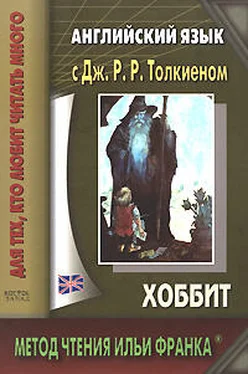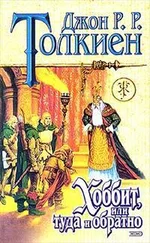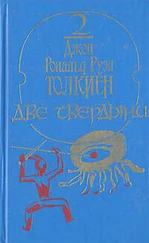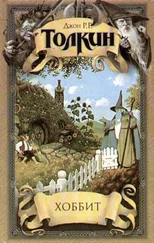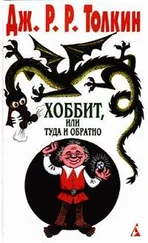skull [skʌl] sure-footed [ˌʃʋǝˈfʋtɪd] unharmed [ʌnˈhɑ: md] disastrous [dɪˈzɑ: strǝs]
“A nasty knock on the head, I think, ” said Bilbo. “But I have a helm and a hard skull. All the same I feel sick and my legs are like straws. ”
“I will carry you down to the camp in the valley, ” said the man, and picked him lightly up.
The man was swift and sure-footed. It was not long before Bilbo was set down before a tent in Dale; and there stood Gandalf, with his arm in a sling. Even the wizard had not escaped without a wound; and there were few unharmed in all the host.
When Gandalf saw Bilbo, he was delighted.
“Baggins!” he exclaimed. “Well I never! Alive after all — I am glad! I began to wonder if even your luck would see you through! A terrible business, and it nearly was disastrous. But other news can wait. Come!” he said more gravely. “You are called for; ” and leading the hobbit he took him within the tent.
“Hail! Thorin (приветствую вас, Торин), ” he said as he entered (сказал он, как только вошел). “I have brought him (я привел его; to bring (brought) ). ” There indeed lay Thorin Oakenshield (там действительно лежал Торин Оукеншильд), wounded with many wounds (израненный множеством ран), and his rent armour (и его изорванная кольчуга; rent—дыра, прореха, разрыв; rent — разорванный, прорванный ) and notched axe (и зазубренный боевой топор) were cast upon the floor (были брошены на пол). He looked up (он поднял глаза) as Bilbo came beside him (когда Бильбо подошел к нему: «рядом с ним»).
“Farewell, good thief (прощайте, добрый вор), ” he said. “I go now to the halls of waiting (я отправляюсь сейчас в чертоги ожидания) to sit beside my fathers (чтобы сидеть рядом с моими праотцами), until the world is renewed (до тех пор, пока этот мир не возродится вновь). Since I leave now all gold and silver (так как сейчас я оставляю все злато и серебро), and go where it is of little worth (и отправляюсь туда, где оно имеет небольшую ценность), I wish to part in friendship from you (я хочу расстаться с вами в дружбе; to part — разделять (ся), отделять (ся); разлучать (ся), расставаться ), and I would take back my words and deeds at the Gate (и я хочу забрать назад свои слова и деяния там, у Ворот; deed — поступок, действие ). ”
Bilbo knelt on one knee (Бильбо опустился на одно колено; to kneel (kneeled/knelt) — становиться на колени, стоять на коленях ) filled with sorrow (переполненный печалью). “Farewell, King under the Mountain (прощайте, Король под Горой)!” he said. “This is a bitter adventure (это жестокое приключение), if it must end so (если оно должно закончится так); and not a mountain of gold can amend it (и никакая гора золота не может исправить этого). Yet I am glad (и все же я рад) that I have shared in your perils (что я разделил с вами ваши опасности/риски; to share — делить, разделять с кем-либо что-либо, участвовать в чем-либо ) — that has been more than any Baggins deserves (это было гораздо большее, чем заслуживает любой из Бэггинсов). ”
wounded [ˈwu: ndɪd] notched [nɔtʃt] knelt [nelt] knee [ni: ] peril [ˈperɪl]
“Hail! Thorin, ” he said as he entered. “I have brought him. ” There indeed lay Thorin Oakenshield, wounded with many wounds, and his rent armour and notched axe were cast upon the floor. He looked up as Bilbo came beside him.
“Farewell, good thief, ” he said. “I go now to the halls of waiting to sit beside my fathers, until the world is renewed. Since I leave now all gold and silver, and go where it is of little worth, I wish to part in friendship from you, and I would take back my words and deeds at the Gate. ”
Bilbo knelt on one knee filled with sorrow. “Farewell, King under the Mountain!” he said. “This is a bitter adventure, if it must end so; and not a mountain of gold can amend it. Yet I am glad that I have shared in your perils — that has been more than any Baggins deserves. ”
“No!” said Thorin. “There is more in you of good than you know (в вас гораздо больше хорошего, чем вы имеете представление), child of the kindly West (дитя доброго Запада). Some courage and some wisdom (некоторое мужество и некоторая мудрость), blended in measure (в меру перемешанные; to blend — смешивать (ся), изготовлять смесь, объединять ). If more of us (если бы большее /количество/ из нас) valued food and cheer and song (ценили бы пищу, веселье и песню; to value — оценивать, дорожить ) above hoarded gold (выше накопленного золота; to hoard — запасать, хранить, накапливать ), it would be a merrier world (мир был бы веселее). But sad or merry (но, печален он /мир/ или весел), I must leave it now (я должен оставить его сейчас). Farewell (прощайте)!”
Then Bilbo turned away (затем Бильбо отвернулся), and he went by himself (и ушел в одиночестве), and sat alone wrapped in a blanket (и сел один, укутавшись в одеяло), and, whether you believe it or not (и, поверите вы или нет), he wept until his eyes were red (он проплакал до тех пор, пока глаза его не покраснели; to weep (wept) — плакать ) and his voice was hoarse (и голос его не стал хриплым). He was a kindly little soul (он был доброй /небольшой/ душой). Indeed it was long (и действительно, прошло много времени) before he had the heart (прежде чем он решился; heart — сердце; мужество ) to make a joke again (снова пошутить; to make a joke — пошутить ).
“A mercy it is (какое счастье ; mercy — милосердие; прощение ), ” he said at last to himself (сказал он, наконец, сам себе), “that I woke up when I did (что я проснулся именно тогда /когда проснулся/). I wish Thorin were living (как бы я хотел, чтобы Торин был жив), but I am glad that we parted in kindness (но я рад, что мы расстались по-доброму: «в доброте»). You are a fool, Bilbo Baggins (ты глупец, Бильбо Бэггинс), and you made a great mess of that business with the stone (и напутал же ты все это дело с камнем; mess — беспорядок, кутерьма; to make a mess of /things/ — напутать, напортить, испортить, провалить все дело ); and there was a battle (битва /все равно/ была), in spite of all your efforts (несмотря на все твои усилия) to buy peace and quiet (купить мир и спокойствие), but I suppose you can hardly be blamed for that (но я так полагаю, что тебя вряд ли можно винить за это; to blame — обвинять, порицать, винить ). ”
Читать дальше
